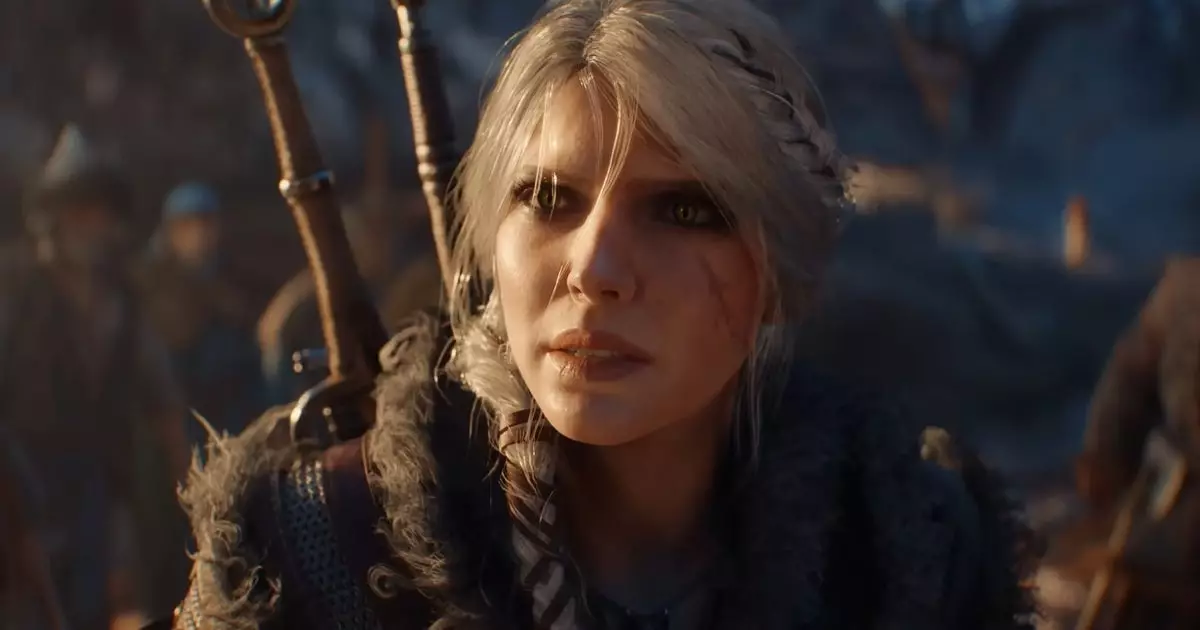As anticipation builds for the next installment in the iconic franchise, CD Projekt Red has recently revealed that *The Witcher 4* has entered what they describe as its “most intensive” production phase. However, before fans get too excited and start sharpening their swords, a reality check is firmly in order: the game is not expected to see the light of day until at least 2027. During a recent earnings call that was more numbers and charts than fairy tales, the developer emphasized a commitment to delivering shareholder value, which essentially translates to—don’t hold your breath for this RPG sequel.
The cautious timeline shared by the studio has led to frustrations among die-hard fans, many of whom were hoping for a release within the next couple of years. The chief financial officer, Piotr Nielubowicz, highlighted that no specific launch date is on the horizon yet. While it’s disappointing to hear that excitement over *The Witcher 4* should be tempered, it offers insight into a company that is prioritizing quality and non-haste over the aggressive push for quick returns.
Embracing Caution: The Case Against Generative AI
An integral part of the earnings call was CD Projekt’s decision not to incorporate generative AI in their game development processes for *The Witcher 4*. While other studios are racing to integrate this technology into their workflows, CD Projekt has opted for the path of caution, primarily due to potential legal concerns surrounding copyright and IP ownership. Joint CEO Michał Nowakowski laid bare the complexity and contentiousness surrounding creative ownership when it comes to AI-generated content.
This stance is refreshingly prudent and stands in stark contrast to the rush seen elsewhere in the gaming industry. However, the company has not completely dismissed the prospect of using AI in the future. According to Nowakowski, there is an ongoing exploration into AI solutions, suggesting that the studio is remaining open to technological advancements, albeit cautiously. The decision to avoid generative AI, while it could limit certain creative processes, underscores a commitment to artistic integrity—a quality that has historically defined *The Witcher* series.
Ciri Takes Center Stage: A New Perspective
One of the most thrilling elements announced so far is the shift in focus from Geralt to Ciri as the protagonist of *The Witcher 4*. This decision not only revitalizes the narrative potential but also allows the game to explore themes that have long been neglected in the realm of fantasy storytelling. CD Projekt intends to delve into issues of sexism within this world saturated with prejudice and stereotypes, which can offer an intriguing lens through which to engage players. The creative risks taken here could resonate deeply with a modern audience and set a benchmark for how fantasy games can tackle real-world issues responsibly.
The implication of Ciri’s central role ushers in opportunities for character development that are layered and nuanced, especially as she grapples with her surroundings and the challenges of leadership and agency. Fans have already seen glimpses of this in the tantalizing trailer featuring Ciri facing an ancient evil, showcasing the stakes as higher than ever.
Returning to Gwent: A Familiar Favorite
Amidst all the shifts, one element of the *Witcher* universe is making its comeback: the beloved in-game card game, Gwent. Its inclusion not only appeals to long-time fans familiar with the card-battling twist but also offers a rich avenue for expanding gameplay and further immersing players in the world of *The Witcher*.
Gwent has proven to be more than just a mini-game; it carved out its niche as a standalone experience that attracted fan engagement far beyond the main storyline. The timely return of Gwent suggests that CD Projekt listens intently to their fan base and understands the importance of enriching the gameplay experience. This strategic inclusion could harmonize quite well with the narrative arc featuring Ciri, enhancing interactivity while still allowing players to engage in epic battles.
Overall, while the prolonged wait for *The Witcher 4* looms like a distant storm cloud, the commitment to pursuing quality storytelling and incorporating relevant social themes signals that even in their delays, CD Projekt Red is paving the way for a bold and exciting future.


Leave a Reply